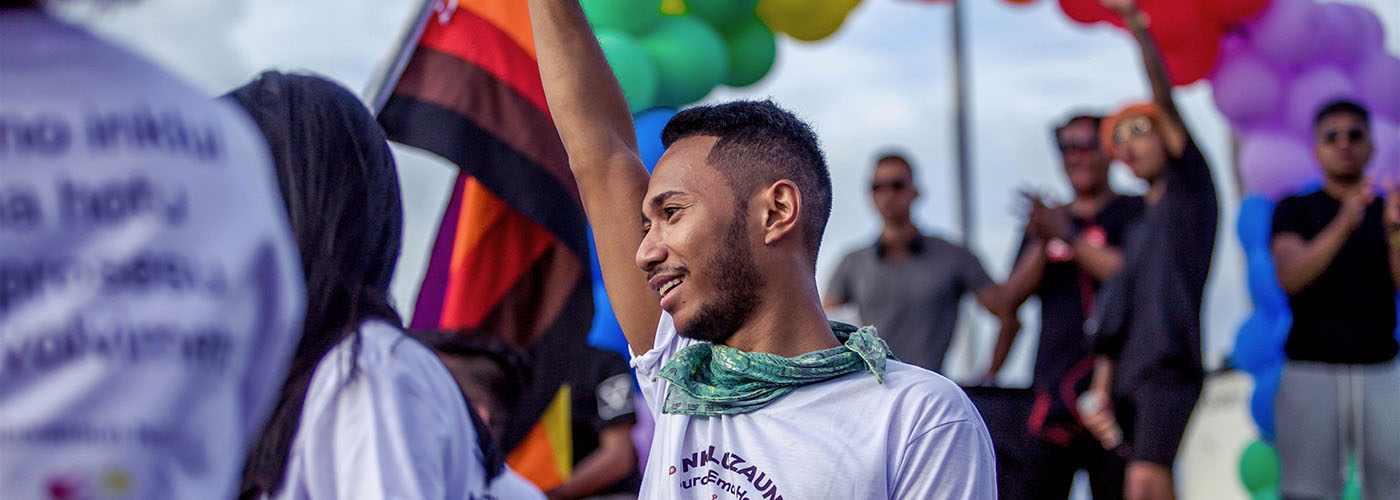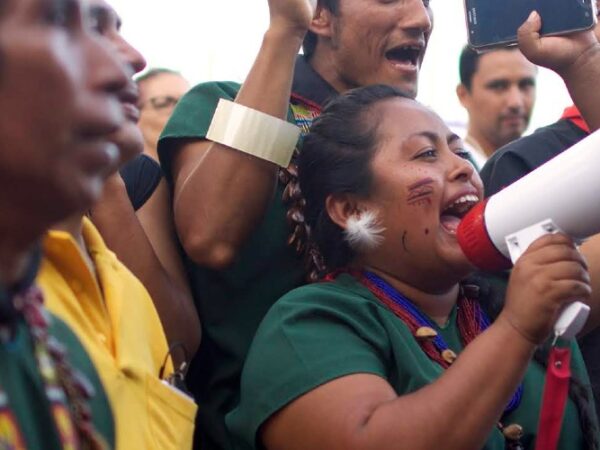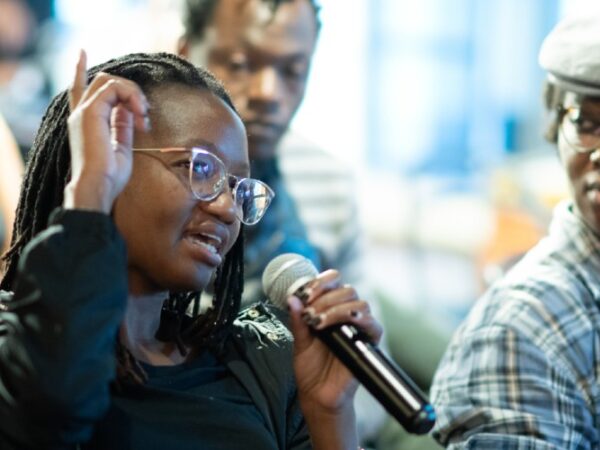Growing inequality and discrimination, coupled with political repression, are having a terrible impact on girls and young women, as well as youth with diverse sexual orientations and gender identities.
We support these groups in building resilient movements, and together we advocate for policies, laws and public services that advance equality for all.
Here we look at some of the actions we took with rightsholders and partner organizations in 2023 to promote Gender Equality, Diversity and Inclusion.
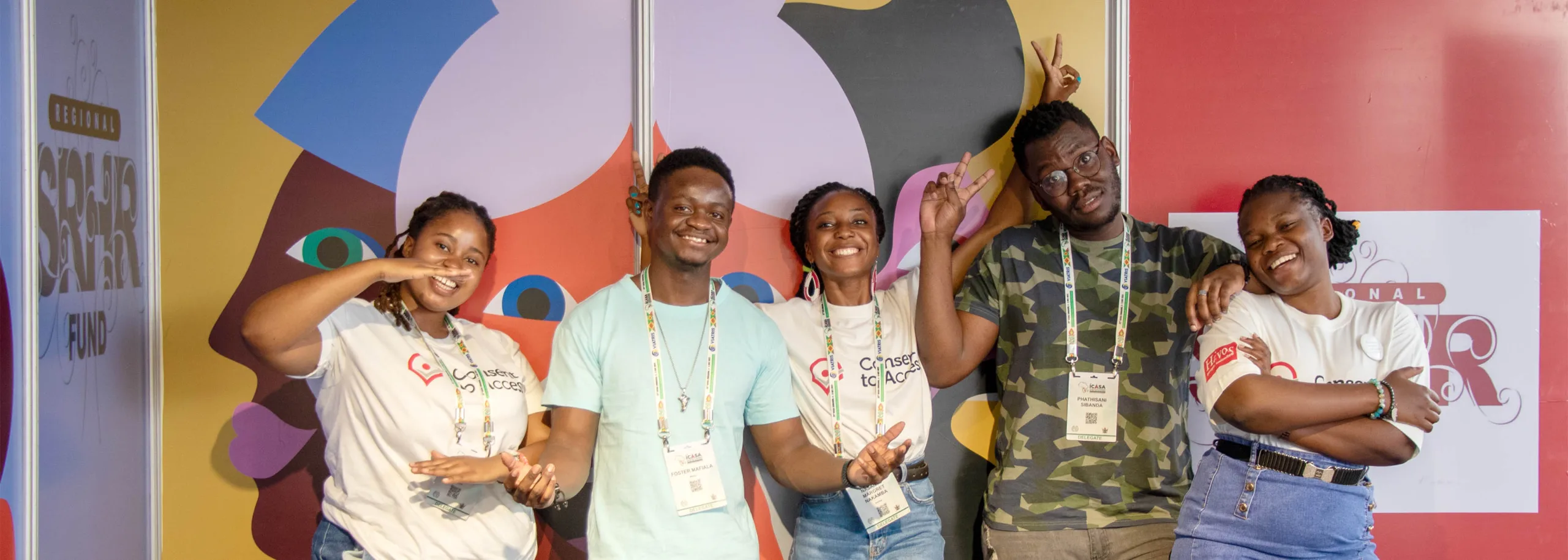
We own our bodies
Exclusion in health policies has a destructive impact, especially on young people. While guaranteeing access to quality services and information is key, it is not enough. We need to make sure sexual health policies and programs are inclusive and designed with the needs of young women in mind.
In 12 countries, we train, support and fund hundreds of young people and their organizations to speak up for their sexual and reproductive health rights. Here are some examples of the work Hivos supports through our programs We Lead and the Regional SRHR Fund.
-
After years of struggle, the ban on emergency contraception, like the morning-after pill, was finally lifted in Honduras in March 2023. Our We Lead team contributed to this important victory.
At the end of 2023, we decided to focus our campaigning on the urgent need for sexual education in Honduras. The alarmingly high rates of teenage pregnancy and sexually transmitted infections were what motivated us. The campaign included messaging on social media platforms, advertorials on radio and television, and in-person exhibitions in five cities across the country.
-
The passing of the Anti-Homosexuality Act in Uganda had a profound impact on inclusive sexual health services, which were halted in many health facilities. AWAC-Uganda quickly put together a response consisting of one-stop centers offering SRHR and other health services, community engagement, and a toll-free hotline to reach hundreds of young people every month.
-
In 2023, The Regional SRHR Fund financially supported 20 youth-led and youth-focused organizations and trained them in evidence-based advocacy. The Fund also set up the Youth Advisory Panel to ensure meaningful youth participation – both within the program and at regional advocacy spaces we attend. YAP members, for example, served as panelists and moderators during the International Conference on AIDS and STIs in Africa. This ensured their perspectives were driving the conversations around ending violence against women and girls in East and Southern Africa.
In Guatemala, Incidejoven succeeded in getting onto the technical committee of the National Plan for Adolescent Pregnancies, ensuring the voice of young women is taken into account when forming and rolling out these policies.
-
The We Lead team in Jordan developed its “Behind the Mask” strategy to open frank conversations on sensitive topics. Participants wear masks that provide confidentiality, particularly to discuss issues of sexuality without fear of judgment or criticism.
But how do you advocate for your rights when you literally do not have the words? For a long time, there was no sign language in Honduras for terms about menstruation, sexual violence and sexual abuse. With our support, a dictionary was developed with 64 new signs for words related to sexuality and body parts.
-
During the Women Deliver Conference in 2023, the Regional SRHR Fund and IPAS worked together to establish the East and Southern Africa Parliamentary Caucus for Sexual Reproductive Health and Sustainable Developments.
The caucus encourages parliamentarians to use their influence and ensure governments keep their commitment to protect the sexual and reproductive health and rights of all citizens, without discrimination. At the official launch in February 2024, the caucus consisted of 10 member states. We are now working to established national caucuses in 15 other countries and support parliamentarians in developing and implementing progressive laws and policies on sexual and reproductive health rights for adolescents and young people. The platform will likewise intensify advocacy to uphold financial commitments and increase government spending on sexual and reproductive health and sustainable development.
We salute the pioneering Members of Parliament for their courage in tackling these challenging SRHR and social development issues.
Free to be Me
The story of Free to be Me in 2023 was one of remarkably unified and spirited fightback in the face of concerted anti-LGBTIQ+ persecution and hate. Our investments in movement building and capacity strengthening led to a variety of responses, including strategic litigation, use of media, arts and popular culture, and alliances with religious leaders and businesses.
-
Rather than being cowed into silence in May 2023 when Uganda's president signed the world’s harshest anti-LGBTIQ+ law, the Free to be Me network and allies had already assembled a broad coalition and legal expertise to mount a constitutional challenge, which the courts agreed to hear in December 2023.
In Kenya, two Free to be Me partners played a crucial role in the country’s Supreme Court’s decision to strike down an attempt to deregister LGBTIQ+ civil society organizations.
And in Zimbabwe we joined forces with many others to prevent discrimination and violence against queer people during the 2023 elections. By developing an election response strategy, Free to be Me helped ensure there were no reported cases of LGBTIQ+ discrimination from politicians or electoral agents, a notable improvement from previous elections.
-
Not all Free to be Me’s work was defensive. In some cases, we were able to make positive gains. In the Philippines, advocacy and outreach by our partners contributed to the Lapu-Lapu city council’s enactment of the Anti-Discrimination Ordinance. This important legislation, aimed at combating discrimination and promoting gender equality, also allocated a groundbreaking one percent employment quota for LGBTIQ+ individuals in both the public and private sectors.
The Lavan Letters (Love Letters) campaign mobilized tens of thousands of young people to write to their MPs in support of a draft anti-discrimination law. Campaigners also organized the largest Pride march in the history of Southeast Asia to demand enactment of the law. Their efforts succeeded in gaining support from more legislators and moving the bill past committee stage (where it had been stuck for years) to plenary discussion.
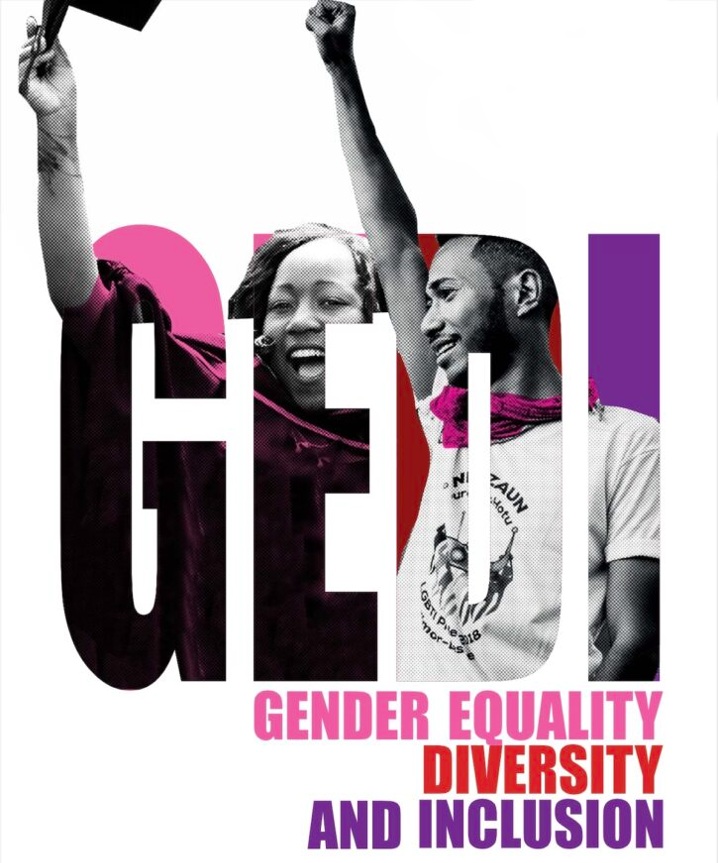
Find out more about our approach to Gender Equality, Diversity and Inclusion
The white paper “Advancing GEDI to achieve equity and justice for all,” outlines our ambition, approach and theory of change. It underpins Hivos’ vision of a more just, fair, dignified, and prosperous society. A society where all people have equal rights, responsibilities, and opportunities.
Want to learn more? Check out all our current Gender Equality, Diversity and Inclusion programs and read our 2022 overview.

